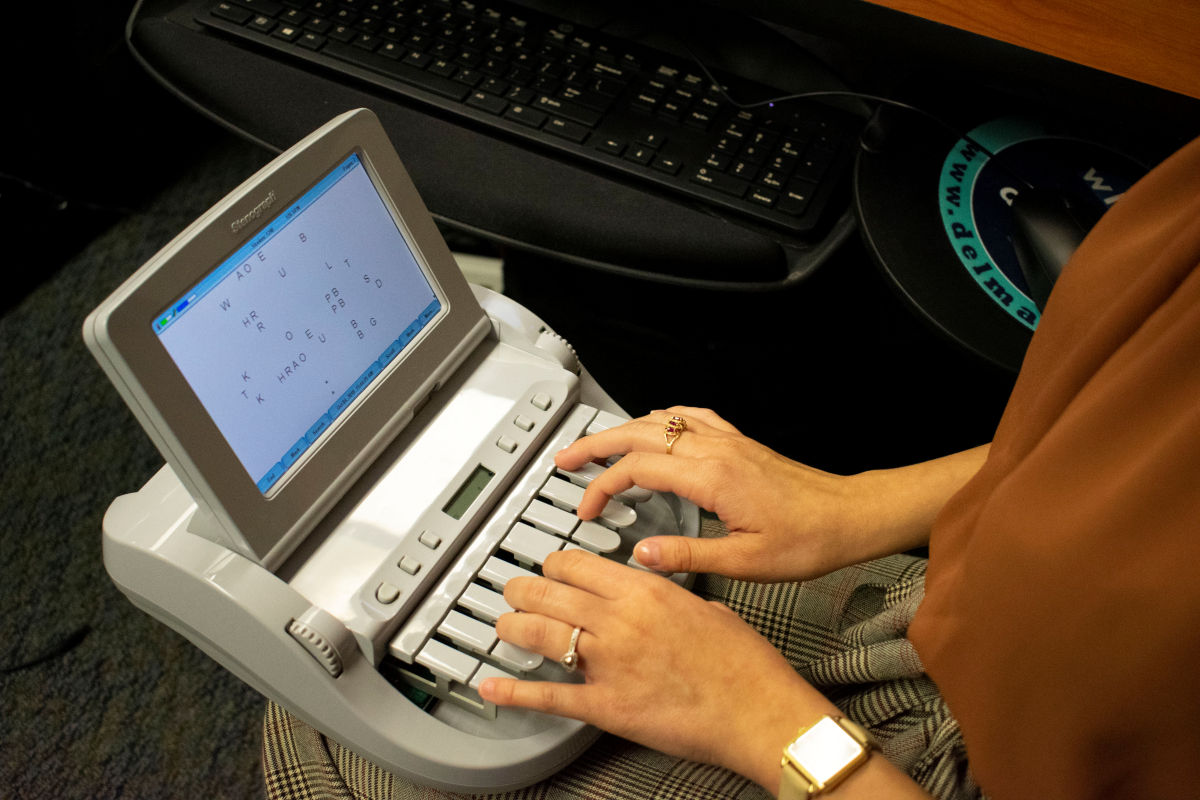Court Reporting for Regulation Firms-- Enhancing Precision and Effectiveness
Court Reporting for Regulation Firms-- Enhancing Precision and Effectiveness
Blog Article
Recognizing the Relevance of Court Coverage in Legal Solutions and Process
Court reporting plays an essential function in the lawful landscape, offering as the foundation of exact paperwork in various legal procedures. By supplying verbatim transcripts, court reporters make certain that every testament and disagreement is diligently recorded, thus protecting the stability of the judicial process.
Role of Court Reporters

Along with transcription, court reporters are typically entrusted with managing and keeping the circulation of process. They must be proficient in lawful terms and have a detailed understanding of court methods to ensure that the document mirrors the context and nuances of the discussion. Their job might also expand past standard courts, encompassing administrative hearings, mediations, and other legal setups where paperwork is necessary.
Furthermore, court press reporters might offer real-time coverage, making it possible for immediate accessibility to records during process, which can be important for the reliable management of justice. By making certain that a precise document is kept, stenotype reporter support the honesty of the lawful procedure, helping with appeals and serving as a vital source for lawyers in their quest of justice.
Importance of Precision

The duty of precision extends past mere transcription; it includes the capability to capture the nuances of speech, including tone, emphasis, and non-verbal signs, which can be critical in recognizing the context of statements made. A precise record makes certain that all celebrations included-- courts, courts, and lawyers-- have access to the same information, cultivating fairness and transparency in the judicial procedure.
Additionally, accurate transcripts are vital for the appellate procedure, where greater courts depend on them to examine lower court decisions. Inaccuracies can jeopardize the outcome of an appeal, possibly impacting an event's legal rights and flexibilities. Thus, the dedication to precision in court reporting is not just a specialist obligation however a cornerstone of justice that maintains the policy of regulation.
Sorts Of Lawful Procedures
Covering a vast variety of legal contexts, court reporters are necessary in different sorts of legal procedures, each requiring unique techniques and skills. Amongst the most typical kinds are civil lawsuits, criminal tests, and administrative hearings. In civil litigation, court reporters catch statements, motions, and depositions, ensuring that every information is documented precisely for possible allures or negotiations.
In criminal tests, the role of court press reporters becomes also much more important, as they record all aspects of the proceedings, consisting of court options, witness testaments, and punishing stages - Court Reporting. The precision and immediacy of these documents are extremely important, given the possible consequences for offenders and the stability of the judicial system
Administrative hearings, typically conducted by governmental click this site agencies, also rely upon court press reporters to preserve official documents of procedures. These hearings can involve conflicts relating to regulative conformity, work issues, or expert licensing, necessitating specific documents.
Furthermore, specialized procedures such as adjudication and mediation require court reporters to capture the nuances of settlements and contracts. Each kind of legal proceeding presents distinct challenges, highlighting the relevance of knowledgeable court press reporters in promoting the integrity of the lawful procedure.
Modern Technology in Court Reporting
Developments in modern technology have actually reinvented the area of court reporting, enhancing both effectiveness and precision in the transcription process. Standard approaches of hands-on note-taking have been supplemented and, in many cases, changed by innovative electronic devices that streamline operations and improve accuracy (Court Reporting). Stenotype reporter now make use of advanced steno equipments geared up with real-time transcription capacities, enabling prompt access to a verbatim account of proceedings
In addition, the integration of speech recognition software has additionally transformed the coverage landscape. This modern technology enables the automated transcription of spoken words, substantially decreasing the moment needed for creating main records. Additionally, cloud-based platforms promote very easy storage space and access of transcripts, making sure that lawyers can access vital files from anywhere, at any time.
Video clip conferencing tools have actually also arised as essential elements in remote depositions and hearings, helping stenotype reporter catch proceedings in real-time, despite place. The combination of these technological developments not just improves the precision of legal documents but also sustains a more efficient and versatile lawful process. As the field remains to develop, embracing these improvements will be vital in fulfilling the growing demands of the lawful sector.
Moral Factors To Consider in Coverage
The integration of modern technology in court reporting brings with it a collection of honest factors to consider that specialists need to navigate carefully. As court press reporters progressively employ digital tools, issues bordering stability, accuracy, and confidentiality come to the leading edge. Shielding sensitive info is critical; reporters must ensure that any kind of digital documents are securely kept and shared just with accredited individuals.
Moreover, the precision of transcriptions is important. Using software application for real-time reporting does not discharge court press reporters from the responsibility of making sure that the last product view is precise. Ethical responsibilities determine that any type of errors need to be without delay corrected and communicated to appropriate parties.

Finally, conformity with legal criteria and industry guidelines is crucial. Court reporters must remain educated about developing honest guidelines to copyright the trust positioned in them by the legal system. By attending to these honest factors to consider, stenotype reporter can remain to supply important services in legal process while maintaining public confidence.
Conclusion
Finally, court reporting plays an essential duty in the legal system by making sure exact look at this site and dependable paperwork of judicial proceedings. The meticulous job of stenotype reporter promotes the honesty of the legal process and sustains the legal rights of individuals involved. The assimilation of modern technology boosts effectiveness while maintaining moral requirements. Inevitably, the relevance of court coverage can not be overstated, as it works as a vital structure for justness, openness, and the reliable management of justice.
Court coverage plays a pivotal duty in the legal landscape, serving as the foundation of precise paperwork in different lawful procedures.Court press reporters regularly play an essential duty in the judicial procedure by developing precise, verbatim records of lawful proceedings.In addition, exact transcripts are essential for the appellate procedure, where greater courts count on them to evaluate reduced court choices.Treatment a broad range of legal contexts, court press reporters are essential in numerous types of lawful proceedings, each requiring unique methods and skills. By dealing with these moral considerations, court reporters can continue to provide very useful services in lawful procedures while maintaining public confidence.
Report this page